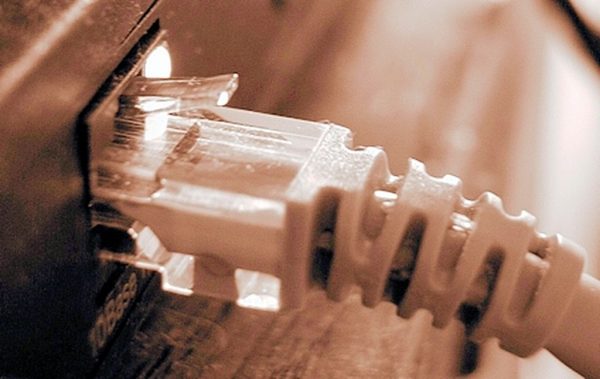Ofcom Publish 5th Annual Report into UK Net Neutrality Issues

Ofcom has today published their fifth annual report into monitoring of the Open Internet Access Regulations (OIAR), also known as “net neutrality” rules. In short, no particular concerns regarding providers’ (broadband ISPs and mobile operators) practices were identified, but there were some interesting little tidbits.
The regulation essentially means that providers cannot impose excessive restrictions against internet traffic and should treat almost all of it equally (i.e. they generally shouldn’t favour specific services, such as by blocking or slowing access). However, there are some exceptions to this, such as for when providers need to impose general traffic management, court ordered blocks or security measures (e.g. anti-virus/spam filtering).
In the UK these rules are applied via somewhat of a soft approach (i.e. it may be better to think of them as guidelines), which were put together by the Broadband Stakeholder Group (BSG) and their 2016 Open Internet Code. The code commits signatory ISPs to neutrality and transparency in traffic management on their networks (details).
Advertisement
Ofcom has the task of monitory the industry to ensure that everybody is playing fair by these rules and, for the second year running, their latest annual report did not identify “any particular concerns” regarding providers’ practices.
However, the regulator is currently in the process of reviewing the net neutrality rules (here), and in keeping with that some of their summary did provide a bit of extra practical context for what that review might seek to change. We’ve summarised some of their key findings from the latest period below – covering May 2020 to October 2021. But other than that, there’s nothing much worth mentioning.
Safeguarding open internet access
Using terminal equipment
The [Article 3(1) of the Regulation] provision makes clear that end users shall have the right to access the internet using “terminal equipment of their choice”. In 2021, Ofcom was alerted to a mobile network’s ‘Fair Usage Policy’ that appeared to restrict the use of a mobile SIM card in fixed routers. We contacted the network operator in question and outlined concerns regarding placing restrictions on the use of terminal equipment of the consumer’s choosing.
This is an issue we intend to consider as part of our ongoing review of the net neutrality framework. In the meantime, we will continue to monitor ISP’s policies in this area, and we encourage all ISPs to ensure they are not placing unnecessary restrictions on their customer’s choice of terminal equipment.
Zero-rating offers
In this reporting period, Ofcom has not conducted any reviews of commercial zero-rating offers. To our knowledge, no new commercial zero-rating offers have come to market in the UK which would require our assessment.
Zero rating during the Covid-19 pandemic
In June 2020, the government announced that MNOs had agreed to remove data charges for people accessing websites providing support to victims of domestic and sexual abuse. EE, Vodafone, O2, Three, Sky Mobile, Virgin Media, Tesco Mobile and Giffgaff all agreed to remove charges for accessing the sites, until at least 31 October 2020.
In both of these instances we did not conduct a detailed review of the zero-rating offers in question. This is because both offers were clearly aimed at supporting consumers during challenging periods and there appeared to be little to no risk of the offers limiting the rights of end-users under Article 3 (1).
Traffic Management
We have not identified any new cases of concern regarding ISPs’ traffic management practices under this Article of the Regulation.
Traffic management in times of Covid-19
As indicated in our previous report, there has been a large increase in usage of the UK’s fixed access networks during the Covid-19 pandemic. In particular the shift to people being at home during the day, home working and home schooling drove significant increases in daytime traffic.
We liaised with ISPs to ensure that any measures put in place to manage and mitigate any network congestion due to these increases met the traffic management requirements in the Regulation. The actions taken by many across industry helped mitigate the impact of increased demand, and traffic remained within manageable levels.
Specialised Services
This provision of the Regulation allows for services that are optimised for specific content, also known as ‘specialised services’ to be provided. There are important technical developments that could lead to the emergence of new and innovative specialised services. In our previous annual reports, we noted the emergence of 5G, network slicing and edge computing as important areas for us to monitor closely given the potential impact on the application of the existing net neutrality rules.
As set out in our net neutrality review call for evidence, we intend to look at whether there is scope to provide more clarity and certainty as to what constitutes a specialised service. We are seeking views specifically on whether it would be beneficial to provide further UK specific guidance in this area.
As part of our review, we have also engaged with mobile operators to better understand the practical applications of 5G network slicing and how these may evolve into the future. We intend to continue these dialogues over the course of the review.
End.
Mark is a professional technology writer, IT consultant and computer engineer from Dorset (England), he also founded ISPreview in 1999 and enjoys analysing the latest telecoms and broadband developments. Find me on X (Twitter), Mastodon, Facebook, BlueSky, Threads.net and Linkedin.
« KCOM’s FTTP Broadband Network Reaches 250,000 Premises UPDATE





















































Re the statement:
“In 2021, Ofcom was alerted to a mobile network’s ‘Fair Usage Policy’ that appeared to restrict the use of a mobile SIM card in fixed routers. We contacted the network operator in question and outlined concerns regarding placing restrictions on the use of terminal equipment of the consumer’s choosing.”
That’s interesting. So why does O2’s “Fair Usage” policy (https://www.o2.co.uk/termsandconditions/mobile/o2-consumer-fair-usage-policy) currently state the following:
“What to avoid: Using equipment or SIM cards other than as intended. For example, using your O2 SIM card in a modem instead of a mobile phone or tablet or using a mobile phone or tablet as a baby monitor would fall outside this Fair Usage Policy”
I think it was a more aimed at Utility Wearhouse who have been blocking there unlimited sims being used in routers after a certain period of time